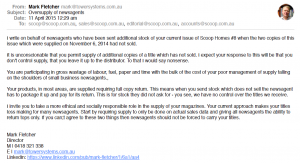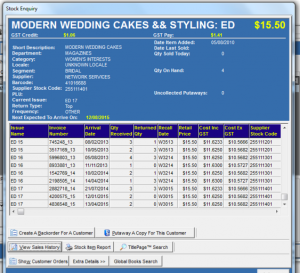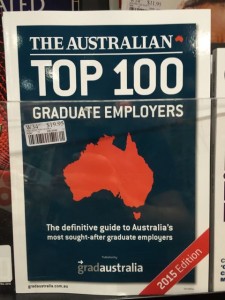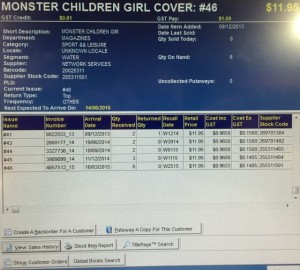ACCC conference listens to newsagent concerns over proposed magazine supply changes
The ACCC conference to consider a trial of new magazine supply rules held yesterday in response to a request I submitted on behalf of newsXpress was well attended. Major magazine publishers attended along with the MPA, lawyers, the ANF, VANA and NANA, several newsagents and a rep from POS Solutions.
While the main conference room was at the ACCC offices in Sydney, there were video links to Melbourne, Brisbane, Canberra, Adelaide and Darwin. There were six newsXpress newsagents who participated from five states and four independent newsagents. Nextra, The Lucky Charm, Supanews and Newspower were not represented.
This conference was a first for our channel. I cannot recall newsagents ever having this type of opportunity to speak directly to the ACCC on the issue of the magazine supply model or to confront magazine publishers and distributors directly on the damage to newsagency businesses of the magazine supply model.
I applaud those newsagents who participated. Our channel is full of people who complain and lacking people prepared to act rather than complain. Participating yesterday meant a day out of the business and being put in a situation which, for some, was confronting as you are face to face with suppliers which historically have done more to harm our channel than most others.
It is disappointing that associations presenting newsagents have failed to achieve this previously. Newsagents participating yesterday demonstrated that they can speak confidently and personally about the matter without getting too bogged down in minutia.
The conference went for two hours with around half in attendance speaking on the proposed magazine supply rule changes.
As I had requested the conference I was invited to make an opening statement. Click here to see the submission I made on behalf of newsXpress – my opening statement was a summary of this submission. I encourage all newsagents to read this as it summarises the concerns I have with the proposed magazine supply rule changes. Also read the MPA submission to which I was responding.
MPA and Bauer Media representatives at the conference said that the concerns raised were ill-founded in that newsagents would have control over supply and would be able to undertake early returns. My response was that if this is the case then why is it not reflected in the proposed supply rules put to the ACCC for its consideration.
There is a disconnect between what the MPA stated at the conference and what is in its submission to the ACCC for the magazine supply trial. I hope the ACCC considers this. It is covered by my submission to the ACCC.
There was considerable discussion about the failure of the magazine distributors to use the sales data provided by newsagents to set supply figures. In discussing data, a Bauer representative commented that there were many newsagency software packages, inferring working with them was difficult. I pointed out that they, Bauer, played a direct role in approving each newsagency software package for us.
Several newsagents challenged the ANF endorsement of the proposed new supply rule trial and that there had been no consultation. To this, the ANF CEO said there had been consultation citing an article in National Newsagent and a mention in an email to its members.
Had the ANF done its job it would have hosted national meetings where any newsagent could comment on the proposed trial. Indeed, the MPA could have organised such consultation. Instead, it relied on casual discussions with a select group of people and the submitted to the ACCC that it had consulted widely with all stakeholders.
I was given an opportunity toward the end of the ACCC conference to revisit some points made by others. At this time I asked the MPA if they had sought to understand what newsagents who are growing magazine sales had done/ The MPA representative said they had not and that it was not part of this trial.
My view is that this trial is about researching efficiency gain opportunities for magazine distributors and publishers. Those goals are wrapped up to look like there is a benefit for newsagents.
The new magazine supply model outlined by the MPA in their submission to the ACCC does not provide newsagents with any significant benefits, it will not make us more competitive, it will not stop oversupply, it will not make magazines more profitable for us, it will not stop newsagents reducing their commitment to magazines.
If the MPA did research newsagents who are growing magazine sales they would discover learnings which would be of more commercial benefit to the newsagency channel and magazine publishers.
Yesterday’s conference was another step in the process of consideration by the ACCC of the application by the MPA for authorisation for a trial of new magazine supply rules. The ACCC will consider yesterday’s conference, written submissions including the one I linked to above and any other submissions between now and mid May.
This is a vitally important matter for newsagents. If you have an opinion about the magazine supply model you need for magazines to be viable in your newsagency, I urge you to read the MPA application, my submission and consider engaging yourself. The more newsagents who engage the better regardless of your position.
There were some good discussions outside the ACCC meeting which gave me confidence that newsagents have got attention on this matter. Discussions over the next couple of weeks will demonstrate if progress can be made outside of the framework of what has been put to the ACCC on this.












